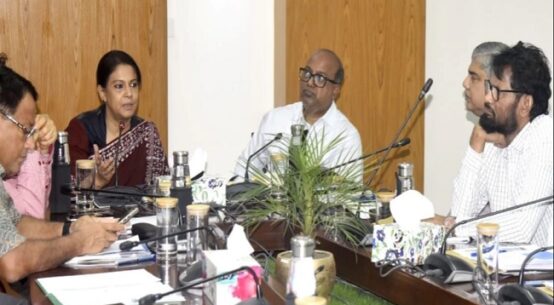
Speaking at a national dialogue, Deputy Inspector General of Police Quazi Zia Uddin has emphasised that every crisis is an opportunity to reimagine, reform, and rebuild trust.
“True reform starts when we prioritise service over control and trust over fear,” he said.
The national dialogue titled “Towards Better Protection of Public Safety and Community Rights: Expectations on Bangladesh’s Police and Public Services”, co-hosted by UNDP in collaboration with UN Women, UNICEF, and UNFPA, was held in Dhaka on Monday.
The event emphasised the urgent need for structural reforms to establish a professional, people-centered, and inclusive police service in Bangladesh.
The dialogue concluded a series of stakeholders, communities, students, experts and CSOs consultations held in Khulna, Chattogram, and Dhaka, which called for strengthening police-community relationships, legislative and human resource reforms, equitable access to justice, accountability mechanisms and leveraging technology to enhance transparency and efficiency.
Participants also requested that resources, career management and service conditions within the police be strengthened.
Sonali Dayaratne, Deputy Resident Representative of UNDP Bangladesh, said, “We are committed to supporting an inclusive and consultative approach to police and justice reforms. Women, youth, and civil society must be at the center of these structural changes to rebuild independent public institutions with integrity and public confidence.”
Participants outlined several actionable recommendations to enhance public safety and police accountability.
They agreed on the urgent need to reform the outdated Police Act of 1861 to reflect modern democratic principles and security challenges.
Strengthening collaboration between police and communities, particularly engaging youth and women, was emphasized to foster trust and shared responsibility for security.
Advancing digitized police operations through modern tools was highlighted as a means to improve efficiency, transparency, and accountability.
Recommendations also included establishing independent oversight mechanisms, such as a Police Service Commission, to combat corruption and build public confidence through impartial oversight.
Participants agreed that police reform must be synced with justice governance reforms to ensure the effective functioning of the criminal justice chain.
Ensuring equitable access to justice for vulnerable groups, including refugees and marginalized communities, was identified as a priority.
Gender-sensitive training for police personnel and increasing the representation of women in law enforcement were proposed to enhance inclusivity and responsiveness.
Upgrading infrastructure to better address the needs of women and children was also highlighted as an urgent requirement.

